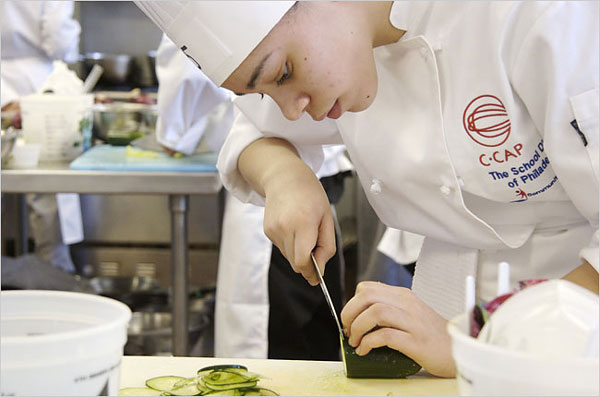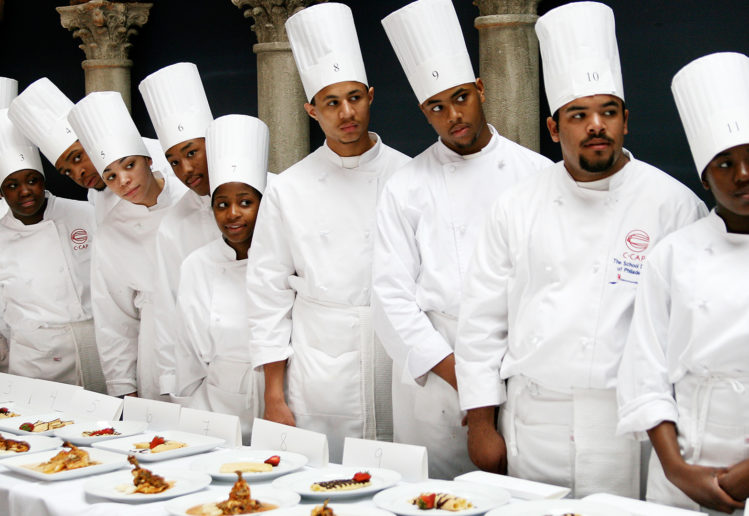In my social media feed, I saw a recommendation that I watch the documentary Pressure Cooker, now streaming on Amazon Prime. The film tells the stories of three inner-city Black teens entering a prestigious culinary arts competition in Philadelphia, and their tough but loving teacher Wilma Stephenson.
Here’s the trailer for the film.
First off, it’s a very well done, entertaining film. Ms. Stephenson the culinary arts teacher is a really compelling character — veering between harsh and aggressive to loving and compassionate. The featured students show incredible drive and resolve in the midst of difficult home circumstances and little outside support.
The principle drama of watching these students prepare for the big city-wide teen cooking competition is really engrossing and entertaining. Watching these young people being judged by head chefs for their work makes for great moments. The stakes for these youth aren’t just the glory of winning a competition, but the possibly life-altering award of a scholarship to a college of their choice.
My favorite parts were just watching the youth getting really good at the difficult art of making fine cuisine. I could watch teens master their knife skills, expertly fry a French-style omelette, and beautifully plate a crepe all day.

Not to ruin the ending, but this film follows the arc of many similar youth competition documentaries. Definitely get ready the tissues for the final act.
As much as I enjoyed the film, I was left with a lot of questions about the program and its impact on the youth who participate in it. I wish there was some exploration of other benefits a culinary arts program might have for these students, whether or not they got college scholarships. Some thoughts I had about what might be some of the benefits:
- Learning to excel at something that takes concentration, skill, technique, and creativity
- Working together to achieve a shared goal
- Receiving feedback and criticism from an adult and your peers, and being able to act from it, and improve your practice
- Resilience in the face of pressure
- Learning a useful life skill
- How delicious and nutritious well made food is!
Instead the film leans into the college scholarships as a way out of their circumstances. But that isn’t something that will be accessible or possible for everyone in Ms. Stephenson’s cooking class.
I see this in a lot of other documentaries and youth programs that I encounter. The goal of many teen intervention programs is to pick out a small number of kids to get a special opportunity to attend college, rather than provide a range of supports for a larger number of youth, who might have a variety of life trajectories after high school. That’s perhaps a less compelling drama for a film, but it’s one that can have larger impacts on an entire community.
